53 citations,
July 2016 in “Cosmetics” Future hair cosmetics will be safer and more effective.
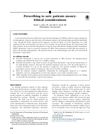 2 citations,
March 2018 in “Journal of The American Academy of Dermatology”
2 citations,
March 2018 in “Journal of The American Academy of Dermatology” Doctors should prescribe cheaper, off-label medication and teach patients how to use it to save money ethically.
11 citations,
March 2006 in “Journal of medical ethics” PRP injections may be an effective treatment for severe hair loss.
 November 2023 in “Facial Plastic Surgery”
November 2023 in “Facial Plastic Surgery” The document concludes that FUE hair restoration is often misleadingly advertised and raises ethical concerns regarding patient evaluation and business practices.
1 citations,
January 2004 in “Hair transplant forum international” Ethical standards and scientific insight are key to growing the hair restoration market.
 December 2024 in “Journal of the American Academy of Dermatology”
December 2024 in “Journal of the American Academy of Dermatology” Dermatologist visits offer safer and more ethical treatment for hair loss than direct-to-consumer platforms.
 December 1998 in “The American Journal of Cosmetic Surgery”
December 1998 in “The American Journal of Cosmetic Surgery” Hair restoration should focus on quality and value, not cost, to maintain the field's reputation and ensure patient satisfaction.
 January 2025 in “Journal of Ayurveda and Integrated Medical Sciences”
January 2025 in “Journal of Ayurveda and Integrated Medical Sciences” A holistic lifestyle and ethical practices are key to managing hair disorders and improving well-being.
 2 citations,
November 2021 in “Regenerative Medicine”
2 citations,
November 2021 in “Regenerative Medicine” UK stem-cell clinics often mislead about treatment safety and effectiveness, needing better regulation.
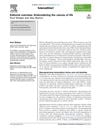 October 2018 in “Current Opinion in Genetics & Development”
October 2018 in “Current Opinion in Genetics & Development” The document emphasizes the importance of ongoing research and ethical considerations in genome editing and cellular reprogramming.
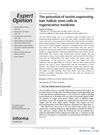 50 citations,
February 2007 in “Expert Opinion on Biological Therapy”
50 citations,
February 2007 in “Expert Opinion on Biological Therapy” Hair follicle stem cells could help repair nerves and avoid ethical issues linked to embryonic stem cells.
 11 citations,
February 2019 in “Research and reports in forensic medical science”
11 citations,
February 2019 in “Research and reports in forensic medical science” DNA phenotyping helps predict physical traits from DNA with varying accuracy and requires careful ethical and legal handling.
 June 2023 in “Journal of Cosmetic Dermatology”
June 2023 in “Journal of Cosmetic Dermatology” AI and AR are improving cosmetic dermatology but face challenges like data quality and ethical concerns.
January 2021 in “Przegla̧d dermatologiczny” Women know more about androgenetic alopecia than men.
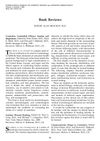 March 2001 in “International Journal of Cosmetic Surgery and Aesthetic Dermatology”
March 2001 in “International Journal of Cosmetic Surgery and Aesthetic Dermatology” The document covers books on cosmetic surgery and skin care, discussing legal and ethical issues, wound healing, the overlap of cosmetics and drugs, and detailed plastic surgery techniques.
 January 2024 in “Advances in Dermatology and Allergology”
January 2024 in “Advances in Dermatology and Allergology” Platelet-rich plasma treatment significantly thickens hair shafts.
March 2021 in “Postepy Dermatologii I Alergologii” Minoxidil works equally well for hair growth regardless of scalp blood flow.
 January 2022 in “Przegla̧d dermatologiczny”
January 2022 in “Przegla̧d dermatologiczny” Platelet-rich plasma treatment can effectively promote hair regrowth in men with androgenetic alopecia without major side effects.
 May 2023 in “GSC biological and pharmaceutical sciences”
May 2023 in “GSC biological and pharmaceutical sciences” Forensic DNA phenotyping is becoming useful for predicting physical traits in criminal investigations but is limited by ethical concerns and incomplete genetic understanding.
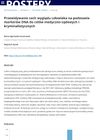 July 2022 in “Postepy biochemii”
July 2022 in “Postepy biochemii” DNA markers can predict physical traits for forensic use, but there are ethical and technical challenges.
 January 2020 in “Przegla̧d dermatologiczny”
January 2020 in “Przegla̧d dermatologiczny” The conclusion is that hirsutism in women can be managed with hair removal techniques, medications, and topical treatments.
 January 2022 in “Przegla̧d dermatologiczny”
January 2022 in “Przegla̧d dermatologiczny” The exact cause of frontal fibrosing alopecia is unknown, but it's not likely due to sunscreen.
 1 citations,
February 2004
1 citations,
February 2004 Skin diseases are common and can significantly affect people's lives; better outcome measures and ethical clinical trials are needed to improve dermatology care.
 January 2024 in “Dermatology Review”
January 2024 in “Dermatology Review” Current treatments for androgenetic alopecia are limited, but research is ongoing to find better solutions.
 2 citations,
January 2021 in “Przegląd Dermatologiczny (1959)”
2 citations,
January 2021 in “Przegląd Dermatologiczny (1959)” The article discusses various treatments for different types of non-scarring hair loss.
 4 citations,
March 2021 in “Postepy Dermatologii I Alergologii”
4 citations,
March 2021 in “Postepy Dermatologii I Alergologii” High-frequency ultrasonography can be a useful tool for diagnosing different stages of alopecia areata, a type of hair loss.
January 2021 in “Przegla̧d dermatologiczny” Higher self-esteem in men with androgenic alopecia leads to less shame and more openness.
 September 2024 in “Current Drug Delivery”
September 2024 in “Current Drug Delivery” Ginger extracts may help treat hair loss by reducing inflammation and promoting hair growth.
 4 citations,
March 1989 in “The BMJ”
4 citations,
March 1989 in “The BMJ” Naproxen is not the cause of hair loss in a child; it's due to a toxic event with expected hair regrowth.
 June 1990 in “Health Marketing Quarterly”
June 1990 in “Health Marketing Quarterly” Drug companies were interested in advertising directly to consumers to make back their money, but most didn't think it would help and were concerned about negative effects.























